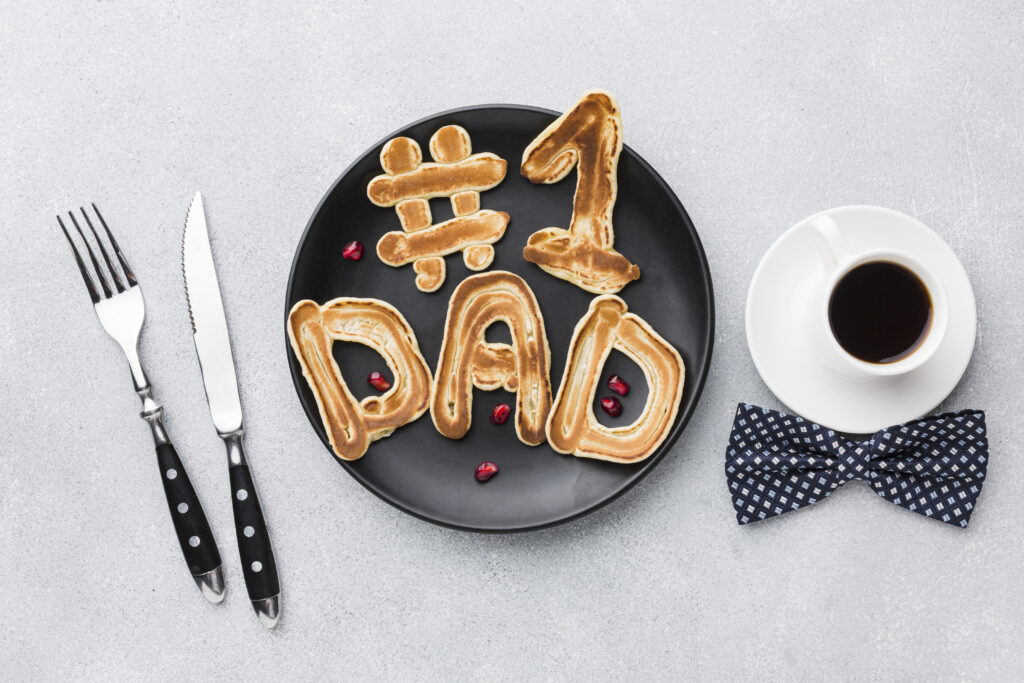Dear You,
Father’s Day is upon us! For many, it’s a day to honor the fathers and father figures in our lives – a day of joy, celebration, and gratitude. But if your father is a narcissist, it gets a lot more complicated. For adult children of narcissistic fathers, this day brings a murky mix of feelings. A day meant to honor and celebrate fathers can be a reminder of the pain, hurt, and challenges you’ve endured while growing up in a narcissistic home. If you grew up with an abusive or neglectful father, it is normal and okay to find days like this difficult. In this article, we’ll look at three reasons you might struggle today. And we’ll give you 4 affirming mantras to help you through.
It Can Be Hard to Celebrate Someone Who Hurt You
When your father has been abusive instead of loving, and manipulative rather than supportive, it makes sense you may find it hard to celebrate them. You might dread calling to wish your dad a “Happy Father’s Day,” because every conversation is an opportunity for him to gaslight you. Or you may feel burdened by finding a Father’s Day card you can stomach signing. Because you don’t feel right doing nothing, but the card selection never quite captures your true feelings. Doing Father’s Day when your father is a narcissist is not easy. And those messy, mixed emotions can weigh on the heart.
Growing up with a narcissistic father can leave deep but invisible emotional scars. From an early age, you learned to walk on eggshells around your narcissistic father. You never knew which version of him you would encounter – the charming, charismatic and likable public persona? Or would it be the critical, cruel, and dismissive private one? This unpredictability can lead to chronic hypervigilance and anxiety that lingers long after you move out of the family home. The self-protection mechanisms we develop early in life stay with us as long as we lack a feeling of safety. And with a narcissistic parent in your life, it can be hard to feel safe in any relationship.
Mantra: I am not obligated to honor someone who abused me.
It Can Be Hard to Know How to Feel
One of the most insidious long-term effects of growing up in a narcissistic family is related to experiencing chronic gaslighting. Being chronically manipulated and made to question your thoughts, feelings, memories, and judgments often results in internalized gaslighting. Parental emotional manipulation and gaslighting can make you question your own reality, and doubt the validity of your own experiences. And over time, you come to internalize their toxic messages, blaming yourself for their shortcomings and believing that you are unworthy of love and respect.
It is okay to feel a range of emotions leading up to Father’s Day. You may feel anger and resentment toward a parent who, instead of protecting and supporting you as a father should, betrayed your trust and dismissed your needs. You may feel sadness and grief over the relationship you have with your father. And you may feel sadness and longing for the father-daughter/son relationship you wish you had. All of these feelings are normal. They all make sense. And it’s okay to feel any and all of them (even at the same time).
Mantra: My emotions are valid, and I am allowed to feel them all.
It Can Be Hard to Feel Alone In This
We don’t always acknowledge some of the sneaky ways grief can worm its way into our lives. For instance, it was probably difficult for you to witness healthy, loving parent-child relationships among your friends and family, knowing yours is so different. Maybe it still is. You might feel angry and embittered at the cosmic unfairness. Your feelings are valid, and you deserve to have your experience acknowledged and validated. Feeling like the only person you know with such a complicated parent-child dynamic can be a lonely, isolating experience. Even when you try to explain your history to others, it can be difficult to articulate. That’s one of the reasons I emphasize finding or building a community that supports you, so you don’t have to go it alone.
Navigating the complexities of a narcissistic parent-child relationship can be incredibly challenging, but it is important to remember that you are not alone in this journey. Even if your friends and loved ones can’t relate to your family dynamics, there are people out there who can. Connect with a support group, talk to a licensed mental health professional with experience treating narcissistic abuse, or find a community support to lean into. It is not weak to ask for help, and needing support doesn’t mean you’ve failed. Don’t be afraid to reach out for help.
Mantra: I am not alone, and it is okay for me to reach out for support.
It Can Be Healing to Care For Yourself
One of the most empowering aspects of therapy is having the opportunity to rewrite our narratives and redefine our relationships, including the one we have with ourselves. Growing up with a narcissistic parent doesn’t condemn you to live forever in this relationship dynamic. You can learn to set boundaries and cultivate self-compassion. And you can break free from the cycle of seeking validation from others, especially from a parent who may never be capable of providing it in the way you deserve.
Find ways to engage in activities that nurture your soul, providing a sense of comfort and grounding (especially during potentially triggering times). Whether it be spending time in nature, creative expression, or practicing mindfulness and meditation, find what brings you joy and gives you the opportunity to reconnect with yourself on a deeper level. You can’t change the past; you’ll always have the experience of growing up with a father who couldn’t love you the way you needed and deserved to be loved. But practicing self-compassion as a way of life can bring nurturing to your spirit that allows you to heal forward.
Mantra: I deserve my own compassion and love.
It Can Get Better
As Father’s Day approaches, try to practice self-care and self-compassion. Allow yourself to feel whatever emotions arise without judgment. And remember that healing is a nonlinear journey, with ups and downs and twists and turns. Surround yourself with supportive loved ones who continuously validate your experiences and remind you of your inherent worth. And remember that just because someone could not give you unconditional love, that doesn’t mean you don’t deserve it.
Remember, healing is a journey, not a destination. Be patient and compassionate with yourself as you navigate the complexities of your emotions and past lived experiences. And know that I am here to support you every step of the way, providing guidance, validation, and empathy as you continue to embark on this path towards healing and empowerment.
With warmth and empathy,
Felicity








